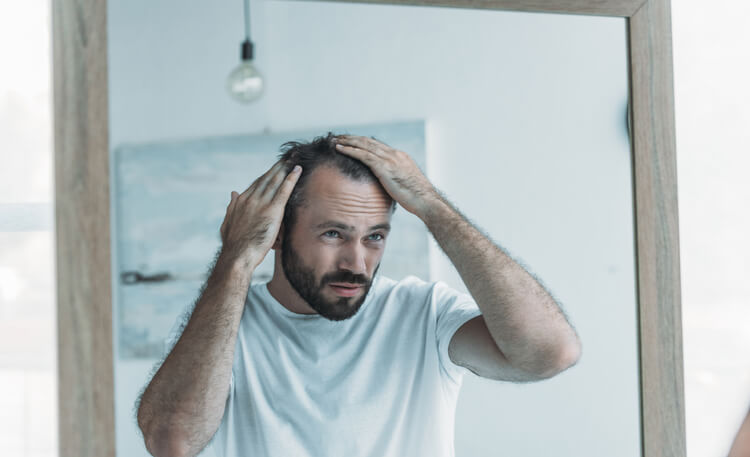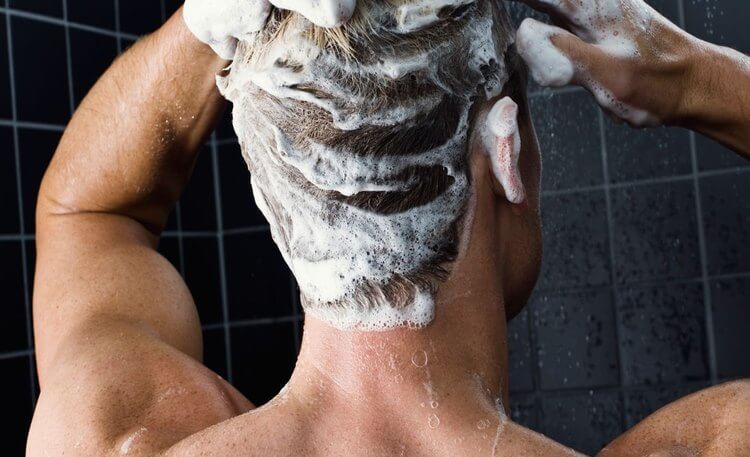Tinea Capitis Hair Loss: Symptoms, Causes and Treatment
- Written by Lordhair Team
- Jan 10, 2020
- |
- 10 min read
 Listen to the full text
Listen to the full textTinea capitis is triggered by a fungal infection that causes hair loss – typically in children but also prevalent in adults. Also known as ‘ringworm of the scalp’, recovery from tinea capitis can take 4 to 6 weeks. However, if initial symptoms are ignored, the recovery treatment can stretch further. That’s why it is necessary to understand the symptoms correctly and to take appropriate action.
In this blog, Lordhair will talk about the symptoms of tinea capitis and its causes before ending with some widely recommended treatments. Let’s start with the symptoms.
Symptoms of tinea capitis
Tinea capitis can be easily mistaken for other skin infections if not diagnosed by an experienced professional. Below are the well-known symptoms of tinea capitis:
- Red bumps and pustules on the scalp that cause pain
- Round patches of scaly skin where the hair has been broken off
- Small or large patches that have small dots
- Brittle or fragile hair that can be easily pulled out
- Yellow crusts on the scalp with pus inside them.
- Low-grade fever and headache
- Lymph nodes swelling under the jaw or armpits
If you notice any of these symptoms, we highly recommend scheduling an appointment with your trichologist as soon as possible.

Now that we have listed the symptoms of ringworm of the scalp, it’s time to talk about the causes of this scalp infection among men, women, and especially children.
Tinea capitis hair loss causes
According to recent studies, the instances of tinea capitis are increasing in the USA. Below are the biggest contributing factors:
Dermatophytes
One of the most common causes of tinea capitis is dermatophytes. For those not familiar with the term, dermatophyte is a parasitizing fungus that thrives on the dead tissues of your scalp. Apart from attacking your scalp, this fungus can also attack other body parts including fingernails and outer layers of your skin.
Dermatophytes rely on warm and moist skin which is the reason our sweaty scalp gets attacked the most.
Scalp infections that trigger hair loss problems like tinea capitis!
Human to human contact
Humans who come into physical contact with people already infected with tinea capitis can develop it themselves. Sharing personal items like the comb or towel of an infected person also greatly increases the chances of an outbreak of this scalp infection.
In short, avoiding tinea capitis requires adhering to high standards of personal hygiene. This brings us nicely to our next point …

Poor hygiene
Children with poor hygiene have a higher risk of getting infected with tinea capitis. From not having their bedsheets washed regularly to wearing dirty clothes, every bad hygiene habit brings someone closer to the hair loss triggering infection.
Unsurprisingly, people who don’t wash regularly get infected by ringworm of the scalp since the condition thrives on dead skin tissue.
Animals to humans
All of us love cuddling with cats and dogs but do you know that they bring their share of allergy and infection-related risks? Besides infecting humans, tinea capitis also targets common household pets such as cats and dogs. In pets, it often looks like a patch of skin where the fur is missing. These patches are often undetectable or hidden under the fur which is the reason why we don’t notice the infected area while petting the animals.

We have listed the most common causes of tinea capitis and its related hair loss. Now, let’s discuss the treatments that will help in overcoming the disease.
Tinea capitis hair loss treatments
Ringworm of the scalp can be scary but thankfully recovery from it is not very complex. Below are the treatments that you should use to treat hair loss problems caused by tinea capitis:
Terbinafine
Terbinafine is one of the most popular antifungal medications used to treat tinea capitis hair loss. Available in the form of tablets, this medication is known to have potent activity against dermatophyte. Taking terbinafine doses of 3-6 mg/kg/d for approximately 2 to 4 weeks will help you overcome scalp ringworm problems.
Please consult your trichologist before taking any terbinafine tablet.
Medicated shampoo
Medicated shampoos are known to have the same effect as antifungal tablets. These shampoos contain antifungal ingredients like ketoconazole and selenium sulfide which help prevent the fungus from spreading over the scalp. Use these medicated shampoos three times a week to help prevent hair loss problems caused by tinea capitis.

Turmeric
People have been using turmeric to treat scalp ringworm since ancient times. Known for its antibacterial and anti-inflammatory properties, this home remedy is also famous for its healing power. To use turmeric in the form of powder, mix fresh-ground turmeric with a small amount of water and mix until it becomes a paste.
Apply the turmeric paste on your scalp and leave it for an hour. Using this method regularly will help you eliminate the problem on the scalp. In the case of severe tinea capitis, opt for medical treatment.
10 home remedies known for triggering hair growth and thickness!
Oregano oil
After turmeric, the most recommended natural treatment for tinea capitis is oregano oil. Mix it with a few drops of carrier oil such as coconut oil and apply it to the affected area to treat tinea capitis naturally. We recommend using this home remedy three times a day to see the effects. Again, for severe conditions, go and seek professional expertise.

Hair recovery with hair systems
Tinea capitis sometimes leads to chronic hair loss which requires a long recovery period. While the hair loss is usually temporary, it might take quite long for the natural hair to grow back. During this time, it is widely recommended to wear a non-surgical hair system or a medical wig as a solution.
Modern hair replacement solutions are designed to deliver an ultra-realistic look and help to gain back any lost confidence. Be it medical hair loss or age-triggered baldness, hair systems are the preferred hair loss solution for many around the world today. Have a look at how Chris’s life changed after buying a hair system from Lordhair.
Still have any doubts or queries about tinea capitis? Email us at support@lordhair.com and our team of hair experts will be sure to help you! Lordhair also strongly recommends consulting a trichologist before using any of the above-listed treatments.
Further reading on medical hair loss conditions:
Stay up-to-date with the latest hair care and styling tips by following Lordhair on Instagram



